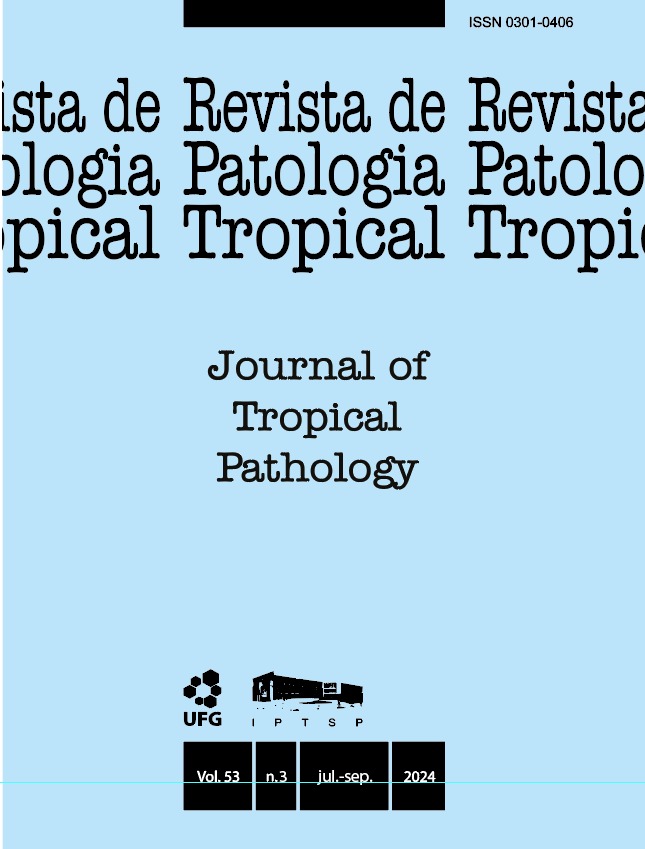Melaleuca alternifolia essential oil combat antibiotic-resistant streptococcus mutans: suppressing quorum-sensing-dependent virulence and biofilm formation
DOI:
https://doi.org/10.5216/rpt.v53i3.78960Resumo
The practical application of Melaleuca alternifolia (M. alternifolia) essential oil, commonly referred to as tea tree oil, as a topical antiseptic is notable. Its chemical composition has been extensively characterized, comprising primarily cyclic monoterpenes. Approximately half of these compounds are oxygenated, while the other half are hydrocarbons. Streptococcus mutans (S. mutans), a gram-positive bacterium commonly inhabiting the human oral cavity, notably contributes to tooth decay. To ascertain the minimum inhibitory concentration (MIC) of M. alternifolia essential oil, the broth microdilution method was employed. Subsequent to these determinations, antibiofilm investigations, quantification of extracellular polymeric substances (EPS), and growth curve analyses were carried out. The findings indicated that M. alternifolia essential oil inhibited S. mutans at a concentration of 10 mg/mL. Statistical examination of the biofilm assay demonstrated a 60.5% inhibition of biofilm formation at a subinhibitory concentration of 5 mg/mL, with no discernible impact on the growth of S. mutans. Furthermore, at this concentration, M. alternifolia essential oil reduced the production of EPS by S. mutans by 30.25%. In conclusion, M. alternifolia essential oil exhibits notable potential as a topical antiseptic, characterized by its predominantly terpene composition. This study underscores its efficacy in inhibiting S. mutans biofilm formation and reducing EPS production, suggesting promising avenues for dental care applications.
KEY WORDS: Streptococcus mutans; melaleuca alternifolia; biofilm; inhibitor; essential oil
Downloads
Downloads
Publicado
Como Citar
Edição
Seção
Licença
The manuscript submission must be accompanied by a letter signed by all authors stating their full name and email address, confirming that the manuscript or part of it has not been published or is under consideration for publication elsewhere, and agreeing to transfer copyright in all media and formats for Journal of Tropical Pathology.

